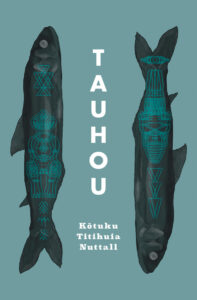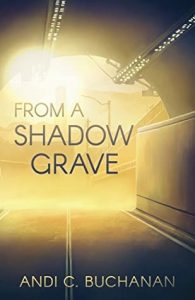I am a white settler living on the territory of Lək̓ʷəŋən-speaking Peoples, and I’ve been looking to read more Indigenous books this year, especially ones by local authors. So when I saw this book, I had to pick it up. It’s by an author of Māori and W̱SÁNEĆ descent, and it reimagines Vancouver Island (my home) and Aotearoa New Zealand is being side-by-side islands, influencing each other throughout history.
Apparently I also just have an infallible radar for queer books, because this also has several sapphic point of view characters, which I didn’t realize when I first added it to my TBR! I love being surprised by queer books.
This is described as a “hybrid novel.” It’s part poetry collection, part connected short stories. Each chapter feels like a vignette. There are some repeating characters, but mostly it shares a setting and focus with the other chapters, not a continuous plot.
Living in British Columbia, I have some familiarity with Coast Salish history and culture, but only in a broad sense. I have even less knowledge of Māori history and culture, which means I know that some of this went over my head. The author’s note explains that this is not a book to educate readers on either: she has combined and reimagined these two cultures that she shares, so it’s not meant to be representative of the real world. Indigenous authors and authors of colour are often expected to educate white readers, so I appreciated Nuttall’s rejection of this idea.
Each chapter is quite short, so we don’t spend a lot of time with any individual character. Instead, we get glimpses into their lives, including how colonialism has affected them.
Queerness is not the focus of any of these vignettes, but it is woven throughout. We see a woman and her wife hosting a dinner party while she fights off a panic attack. A young woman tries to introduce her white girlfriend to her aunty in the graveyard. (That one was my favourite.) An artist paints her muse/lover and can’t help comparing their bodies.
Nuttall is skilled in establishing characters, mood, and setting in just a few pages. Although we kept moving to different points of view, I was swept up in this setting that weaves together two cultures in fascinating and thoughtful ways. I’ll definitely be picking up whatever this author writes next.



